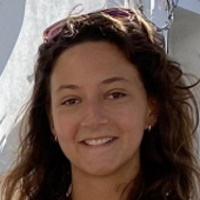Marine Keime

There are currently 12 million people aged 65 or over in the UK, so there is a fundamental need to understand the ageing process and develop interventions supporting healthy ageing. Advanced age is associated with deterioration of cognitive-motor skills. This manifests as a slowing of movements and deficits in the selection of appropriate actions, which negatively impacts the daily life activities. These declines in cognitive-motor control occur in parallel to changes in the brain. For instance, the way different brain areas interact with each other is altered: some areas are newly engaged, while others become more disconnected. Here, I will employ state-of-the-art technology that allows participants to visualise and control their own brain activity, termed fMRI neurofeedback. I will combine it with an action selection task, which involves planning and selection of the appropriate movement and is particularly sensitive to age-related changes as it engages both cognitive and motor processes. While doing this task inside a MRI scanner, participants will attempt to enhance the interaction between different brain areas. I will then assess if there are improvements in a variety of tasks including a daily life activity questionnaire. This will allow me to identify which brain connections are important for cognitive-motor performance and the independent living in older age. I will also test whether participants can use strategies to enhance brain connections even in the absence of neurofeedback. I will use qualitative methods to identify behavioural strategies that can potentially be used at home.
This project will further our understanding of the ageing process and provide proof of concept for a cutting-edge intervention tool to support healthy ageing and the independent living of the older person.

